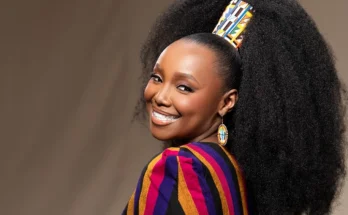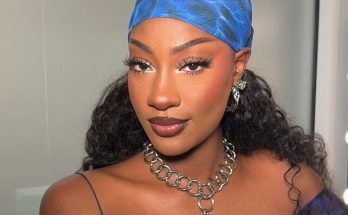A few years ago, if you had told an African musician, comedian, or fashion influencer that a short-form video app would change the trajectory of their career, they might have laughed it off. After all, platforms like YouTube, Instagram, and Twitter had long been the dominant spaces for digital influence. But then came TikTok: a game-changer that rewrote the rules of content creation, making virality more democratic and redefining what it means to be a celebrity in the digital age.

From Nigeria to South Africa, Kenya to Ghana, TikTok has transformed into more than just a hub for dance challenges and lip-syncing. It has become a launchpad for African creatives to showcase their talents, build personal brands, and unlock streams of income that were once unimaginable. With an algorithm that prioritizes creativity over celebrity status, TikTok has made it possible for African stars, whether established or emerging—to strike digital gold.
Africa is emerging as a pivotal market for social media platforms, driven by a burgeoning population of young, tech-savvy users. With favorable demographics, increasing internet penetration, and promising economic prospects, the continent’s advertising and consumer markets are set for substantial long-term growth. This evolution has attracted significant investments from major players like Meta, the parent company of Facebook and Instagram, and ByteDance, the Chinese tech giant behind TikTok.
In recent years, both companies have notably expanded their footprint across Africa. TikTok, in particular, has rapidly ascended to become one of the leading sources of news and entertainment for African social media users. A report by Geopoll highlighted that, as of 2023, TikTok was the second most popular social media platform in Africa, surpassing Instagram and X (formerly Twitter), and trailing only behind Facebook.
The report stated, “Facebook emerged as the leader in active user engagement, boasting 82% of participants actively using the platform. TikTok followed closely with a significant 60% active user rate, indicating its growing popularity.” This survey, conducted across Nigeria, Ghana, Kenya, and South Africa, revealed that the majority of participants spend an average of three to six hours daily on social media platforms, underscoring the integral role apps like TikTok play in the daily lives of millions of Africans.
The Rise of TikTok Among African Celebrities
TikTok’s unique format, characterized by short-form, engaging videos, has resonated deeply with African audiences. This platform has not only provided entertainment but has also emerged as a powerful tool for African celebrities to showcase their craft, connect with fans, and monetize their content.
One of the most compelling narratives in the TikTok universe is that of Khabane “Khaby” Lame. Born on March 9, 2000, in Senegal, Lame moved to Italy as an infant and grew up in Chivasso, near Turin. During the COVID-19 pandemic, he lost his job as a factory worker and turned to TikTok to pass the time. His silent, expressive videos that humorously debunk overly complicated life hacks quickly gained traction.

By June 2022, Lame had become the platform’s most-followed creator, boasting over 162.8 million followers as of September 2024. His influence extended beyond social media; he collaborated with luxury fashion brand Hugo Boss and served as a juror at the Cannes Film Festival. In 2025, Lame was appointed as a UNICEF goodwill ambassador, leveraging his platform to inspire and advocate for children globally.
For instance, South African musician Tyla experienced a meteoric rise to international fame with her 2023 hit “Water,” which amassed over 10 billion views on TikTok. Her success on the platform not only earned her a Grammy for best African music performance but also led to collaborations with major brands like Dolce & Gabbana and Louis Vuitton. Tyla’s journey exemplifies how TikTok can serve as a launchpad for African artists to reach global audiences and secure lucrative partnerships.

Similarly, Nigerian content creator Peller, known for his comedic skits and engaging live streams, has leveraged TikTok to build a substantial following. His innovative content and collaborations with prominent figures have culminated in significant earnings and recognition, including winning the “Best Content Creator” award at the Trace Awards Africa in 2024.

Monetization Opportunities and Challenges
TikTok offers various avenues for creators to monetize their content, such as live gifting and brand partnerships. However, African creators face unique challenges in accessing these monetization tools. Notably, TikTok’s Creator Fund, designed to reward content creators based on their video views and engagement, is not available in most African countries. As of now, only Morocco, Egypt, and South Africa are included in the 53 regions where TikTok’s Effect Creator Rewards scheme operates, leaving a significant portion of African creators without direct access to these funds.
This exclusion has sparked criticism from African content creators, who argue that despite contributing to viral trends and the platform’s growth, they are not compensated equitably compared to their Western counterparts. The disparity in monetization opportunities has led many African creators to rely solely on brand deals and external sponsorships to earn a living.
In response to these concerns, TikTok has launched several initiatives aimed at supporting African creators. One notable effort is the Africa Creator Hub, an incubator program introduced to help creators succeed on the platform. The inaugural cohort consisted of 28 creators from West and East Africa, who participated in an intensive eight-week training program held in Kenya and Nigeria. During this period, participants received training on creating high-quality content, accessed career-building resources, and engaged with prominent industry leaders. Additionally, they had opportunities to interact, collaborate, and build a community with their fellow creators.
The Impact on African Culture and Entertainment
Beyond monetization, TikTok has played a pivotal role in promoting African culture and entertainment on a global scale. The platform has become a stage for African creatives to share their unique narratives, traditions, and artistry with the world. For example, TikTok has significantly contributed to the rise of Afrobeats and Nollywood, bringing these genres to global audiences and strengthening Africa’s position in the global digital economy.
Despite its positive impact, TikTok faces significant criticism from policymakers across the continent due to concerns about safety and trust. In some African countries, the app has been banned or faces potential restrictions, with authorities linking its use to subversive political activities and the spread of harmful misinformation. Critics argue that TikTok’s content regulation is insufficient, exposing users to inappropriate content that could potentially undermine cultural and religious values.
Additionally, the exclusion of African creators from key monetization programs has led to allegations of bias in TikTok’s remuneration model, resulting in significantly lower payments and fewer opportunities for local creators compared to those in the US and Europe.
TikTok has undeniably become a powerful platform for African celebrities and creators, offering unprecedented opportunities to showcase their talents, connect with global audiences, and monetize their content. However, to fully harness this potential, it is imperative for TikTok to address the existing disparities in monetization opportunities and enhance its content regulation policies to ensure user safety and trust. By doing so, TikTok can continue to empower African creatives, celebrate the continent’s rich cultural heritage, and contribute to the growth of Africa’s digital economy.




